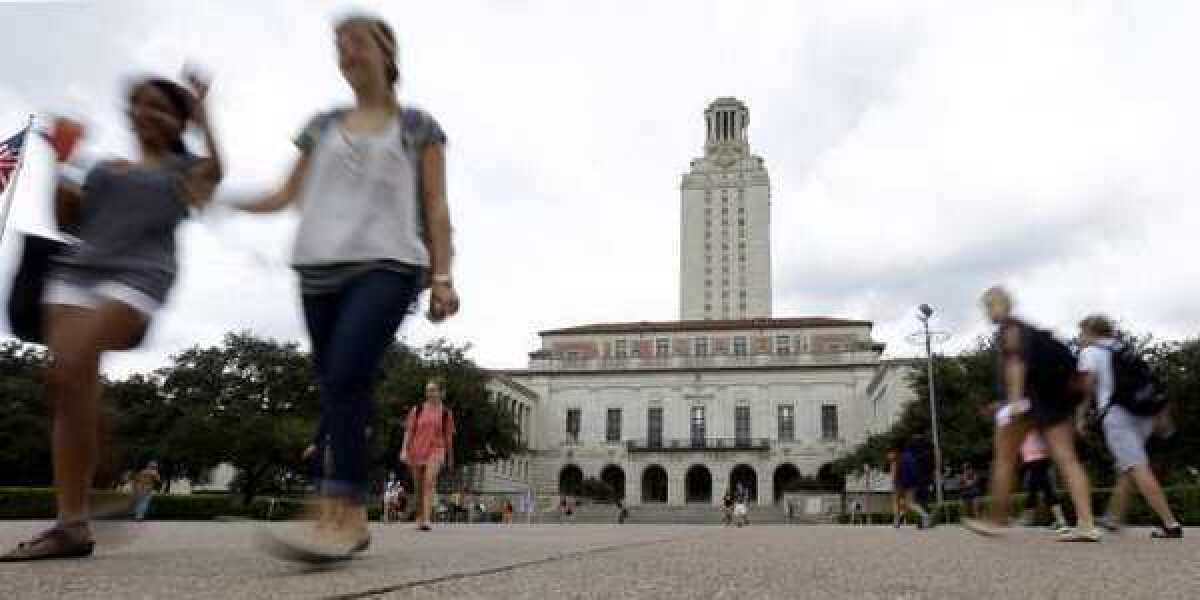Affirmative action and the unprepared minority myth

- Share via
Two new voices have entered the fray to criticize affirmative action. Richard Sander and Stuart Taylor have been ubiquitous in recent weeks on panels, talk shows and in their Times Op-Ed article Sunday, “Do race preferences help students?” They claim to bring a new story to the affirmative action debate in which their concern is the beneficiaries, and their contribution is empirical. The story they are telling is that black and Latino students have been harmed rather than helped, their legal and scientific careers curtailed by the “preference” that led them to attend a highly selective law school or college.
Scholars who have examined the research -- virtually all of it by Sander himself -- have found it deeply flawed. It contradicts the mountain of evidence that minority students who attend selective law schools and colleges tend to be more likely to graduate and to have higher earnings than those who attend less selective schools. There is some evidence that minorities leave the sciences at higher rates than whites, but many students of every race who enter college planning on medical school or engineering choose otherwise -- and bias in the sciences may be “chilling” to minorities and to white women as well. (A recent study showed that the same resume was considered more impressive when it was submitted by “John” rather than “Jennifer.” Similar studies about minorities abound.) So the conclusion that affirmative action causes students to leave is open to serious question.
Why does Sander’s and Taylor’s hypothesis have broad appeal? Because we often assume that “credentials” such as standardized test scores like the SATs for college or the LSATs for law school are objective predictors of merit. And so it follows that anyone who has a lower SAT or LSAT score is less meritorious and therefore more apt to fail. But the numbers don’t support this story -- because they tell us much less than we assume.
The LSAT, for example, predicts at best 18% of the difference in first-year grades in law school, less for upper-level courses and even less for ultimate professional success. But if we think the LSAT is a truly meaningful predictor of success in law school, our experience can be deeply affected by it and it can take on a power of its own. This effect is likely to be particularly true for minority students, who are already battling stereotypes about intellectual capacity.
Beginning in the 1990s, Claude Steele of Stanford and Joshua Aronson of New York University showed that “stereotype threat” anxiety about confirming negative stereotypes about a group can affect performance on difficult tests. Black students who took a difficult verbal test and were told that their performance wasn’t being measured scored far higher than those who were told that how they did on the test measured their intelligence. The same phenomenon applies to other groups. White men will do less well on a math test if it is suggested that Asian Americans tend to do better on the test.
Stereotype threat has been shown in more than 300 studies to affect performance on difficult tests. Both the SAT and the LSAT are difficult tests. And if we then treat these tests as indicators of ability in college and law school, we are creating conditions in which minority students are less likely to perform to capacity.
It is rarely acknowledged that the LSAT has a range of error of up to three points, and stereotype threat has been shown to depress a performance on tests like the LSAT by about 10% of raw score, which equals about three to four points. So any student of color’s LSAT score may be underestimating his or her capacity by quite a bit.
The numbers are a small part of the story, despite what Sander and Taylor tell us.
ALSO:
Electric cars revisited: Yeah, they’re a good idea
Rachel Godsil, a professor at the Seton Hall University School of Law, coauthored an amicus brief on behalf of experimental psychologists in Fisher vs. University at Texas.
If you would like to write a full-length response to a recent Times article, editorial or Op-Ed, here are our FAQs and submission policy.
More to Read
A cure for the common opinion
Get thought-provoking perspectives with our weekly newsletter.
You may occasionally receive promotional content from the Los Angeles Times.









